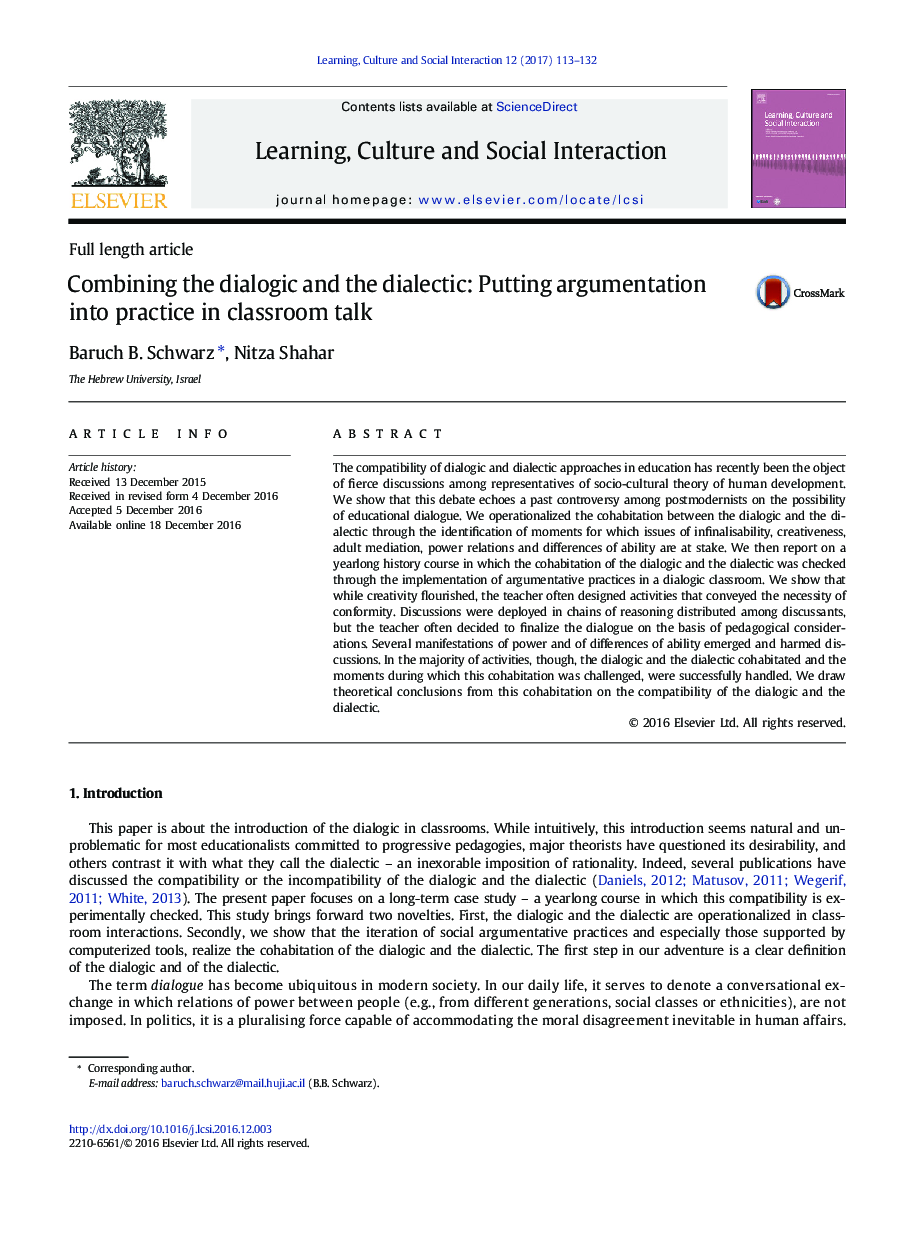| Article ID | Journal | Published Year | Pages | File Type |
|---|---|---|---|---|
| 4939928 | Learning, Culture and Social Interaction | 2017 | 20 Pages |
The compatibility of dialogic and dialectic approaches in education has recently been the object of fierce discussions among representatives of socio-cultural theory of human development. We show that this debate echoes a past controversy among postmodernists on the possibility of educational dialogue. We operationalized the cohabitation between the dialogic and the dialectic through the identification of moments for which issues of infinalisability, creativeness, adult mediation, power relations and differences of ability are at stake. We then report on a yearlong history course in which the cohabitation of the dialogic and the dialectic was checked through the implementation of argumentative practices in a dialogic classroom. We show that while creativity flourished, the teacher often designed activities that conveyed the necessity of conformity. Discussions were deployed in chains of reasoning distributed among discussants, but the teacher often decided to finalize the dialogue on the basis of pedagogical considerations. Several manifestations of power and of differences of ability emerged and harmed discussions. In the majority of activities, though, the dialogic and the dialectic cohabitated and the moments during which this cohabitation was challenged, were successfully handled. We draw theoretical conclusions from this cohabitation on the compatibility of the dialogic and the dialectic.
